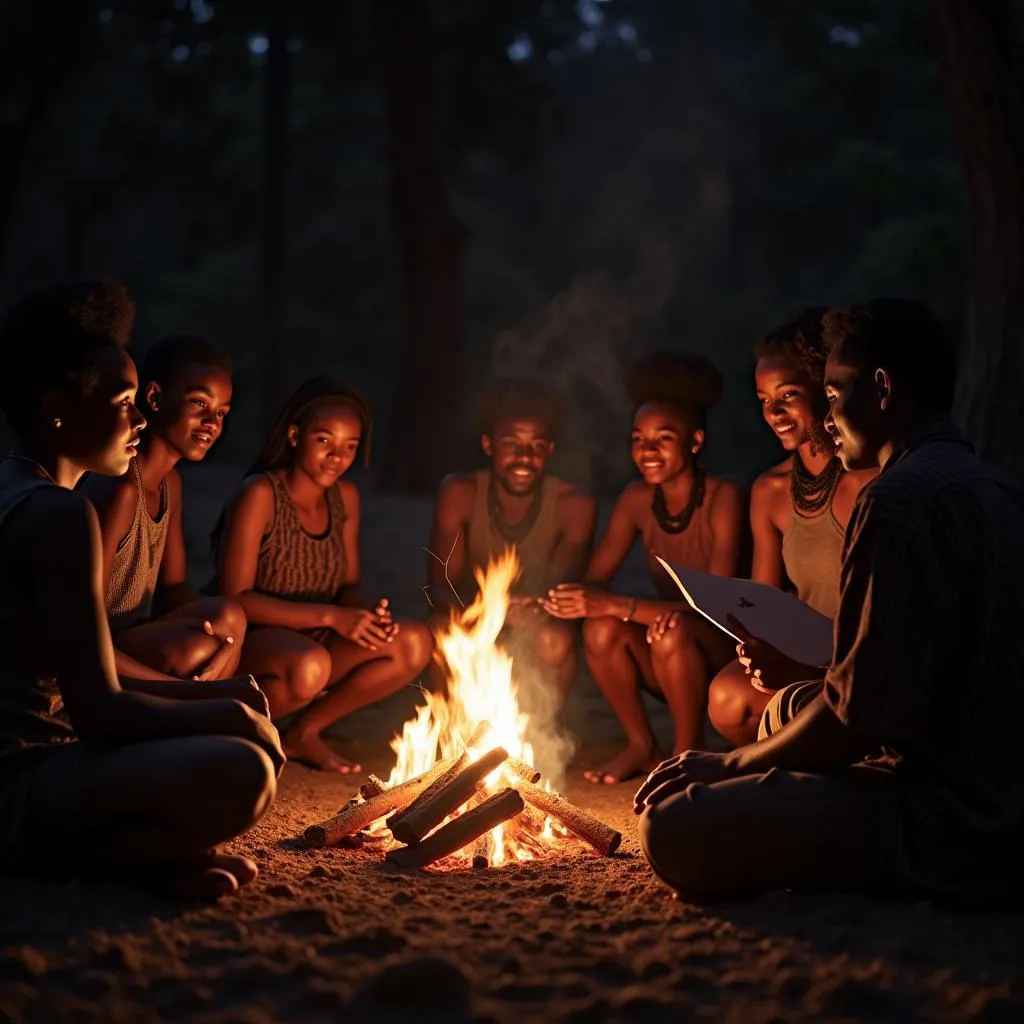The African Film Movement: A Continent’s Stories on Screen
The African Film Movement encompasses a rich tapestry of cinematic expressions that have emerged from the continent since the early 20th century. These films offer a powerful lens through which to understand Africa’s diverse cultures, histories, struggles, and triumphs.
A History Shaped by Colonialism and Independence
The origins of the African film movement are intertwined with the continent’s colonial past. Early filmmaking in Africa was largely controlled by European powers, who often portrayed Africa through an exoticized and stereotypical lens. However, as independence movements gained momentum in the mid-20th century, African filmmakers began to reclaim their narratives.
Pioneers like Ousmane Sembène from Senegal and Souleymane Cissé from Mali led the way, creating films that explored themes of colonialism, neocolonialism, and the challenges of nation-building. These early works laid the foundation for a distinctly African cinematic language.
Key Genres and Themes in African Cinema
African cinema is incredibly diverse, encompassing a wide range of genres and themes. However, certain threads run through many films, reflecting shared experiences and concerns:
-
Postcolonial Critiques: Many African films grapple with the legacy of colonialism and its ongoing impact on African societies. They examine issues such as identity, neocolonialism, and the search for cultural authenticity.
-
Social Realism: A significant portion of African cinema focuses on the everyday realities of ordinary people. These films shed light on poverty, corruption, inequality, and other social issues.
-
Oral Traditions and Folklore: African filmmakers often draw inspiration from rich oral traditions and folklore. They incorporate elements of mythology, storytelling, and music into their narratives.
-
Pan-Africanism and Diaspora: The theme of Pan-Africanism, which emphasizes the unity and solidarity of people of African descent worldwide, is a recurring motif. Some films also explore the experiences of the African diaspora.
Notable Filmmakers and Movements
Over the decades, the African film movement has produced a constellation of talented filmmakers who have achieved international acclaim:
-
Ousmane Sembène (Senegal): Considered the “father of African cinema,” Sembène’s films often explored the clash between tradition and modernity in postcolonial Africa.
-
Souleymane Cissé (Mali): Cissé’s work is known for its lyrical visual style and its exploration of political corruption and social injustice.
-
Djibril Diop Mambéty (Senegal): Mambéty’s films are characterized by their experimental style and their focus on the margins of society.
-
Safi Faye (Senegal): One of the first female filmmakers from Sub-Saharan Africa, Faye’s documentaries and fictional films often center on the lives of women in rural Senegal.
-
Abderrahmane Sissako (Mauritania): Sissako’s films have gained international recognition for their insightful explorations of globalization, migration, and the human condition.
The Impact and Future of African Cinema
The African film movement has played a vital role in shaping global perceptions of Africa, offering nuanced and authentic representations of the continent’s complexities. African films have garnered prestigious awards at international film festivals, demonstrating their artistic merit and cultural significance.
The future of African cinema looks bright, with a new generation of filmmakers emerging who are pushing creative boundaries and exploring fresh perspectives. Digital technology has made filmmaking more accessible, allowing even more African voices to be heard on the world stage.
FAQs About the African Film Movement
Q: Where can I watch African films?
A: You can find African films at international film festivals, through online streaming platforms dedicated to world cinema, and at select art house theaters.
Q: Are there any recurring visual motifs in African cinema?
A: Yes, many African filmmakers use vibrant colors, symbolic imagery, and long takes to convey cultural nuances and emotional depth.
Q: How has colonialism impacted African filmmaking?
A: Colonialism initially limited African filmmaking, but it also sparked a desire among African filmmakers to reclaim their narratives and tell their own stories.
Q: What is the significance of oral traditions in African film?
A: Oral traditions are deeply ingrained in African cultures, and filmmakers often draw upon them to enrich their narratives with history, mythology, and cultural values.
Q: How has African cinema evolved in recent years?
A: African cinema continues to evolve, embracing new technologies, exploring diverse genres, and addressing contemporary social and political issues.
For any inquiries or assistance regarding African culture and travel, please don’t hesitate to contact us at:
Phone Number: +255768904061
Email: kaka.mag@gmail.com
Address: Mbarali DC Mawindi, Kangaga, Tanzania. We have a dedicated customer support team available 24/7.

